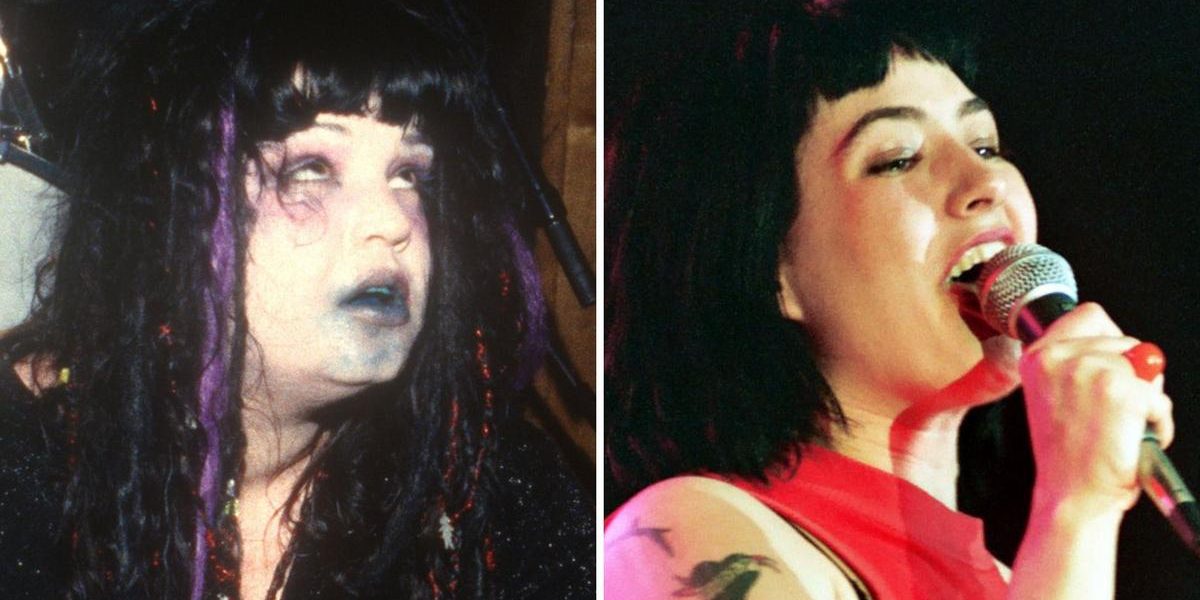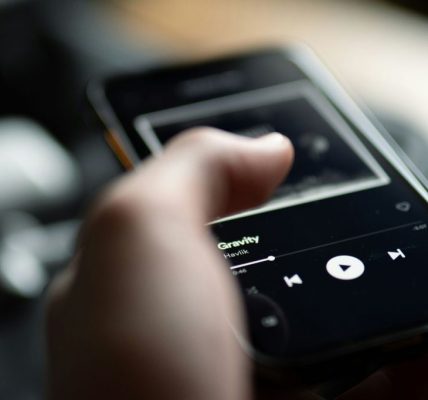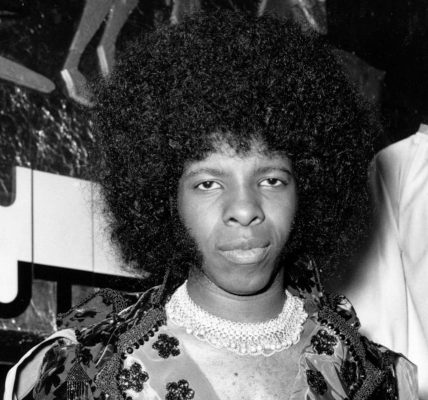Discover five remarkable 1990s alternative rock bands that truly deserved greater recognition.
The arrival of Nirvana and their groundbreaking album Nevermind in 1991 marked a pivotal shift in the musical landscape of the ‘90s. This decade witnessed a dramatic departure from the excessive glam metal scene that had dominated Los Angeles, ushering in the introspective and haunting melodies of Seattle’s most talented artists.
As bands like Pearl Jam, Soundgarden, and Alice In Chains surged to the top of the charts, others like Cake and the Red Hot Chili Peppers were busy reshaping the very essence of alternative rock. However, amidst these cultural shifts, a handful of underdog acts emerged, carving out unique spaces in the music industry that reflected their rebellious spirits.
READ MORE: 15 1980s Rock Bands That Should’ve Been Bigger
These innovative trailblazers combined raw energy with experimental flair, creating sounds that served as a vibrant mixture of thoughtful lyrics and a bold rejection of commercial norms. While they might not have ruled the charts or filled the airwaves, for those familiar with their work, these bands represented the very heartbeat of a decade characterized by fearless musical innovation.
Join us as we explore the realm of the unsung champions of the 1990s—a collection of alternative bands that should’ve reached greater heights, yet whose enduring influence resonates powerfully even today.
-
Jack Off Jill: The Pioneers of Riot Grrrl Sound
Emerging from the humid swamps of Ft. Lauderdale, Florida in the early 1990s, Jack Off Jill established a fierce presence with their venomous blend of riot grrrl angst, industrial edge, and gothic glam theatrics. Led by the bold and unapologetic Jessicka Addams, this band not only challenged the norms of their era but did so with an intensity that was impossible to ignore.
Formed in 1992, Jack Off Jill thrived in the same underground scene that gave rise to shock-rock legend Marilyn Manson—who notably contributed to their early career by producing their first demo and sharing the stage with them frequently. However, while Manson embraced horror aesthetics, Jack Off Jill ventured into a different realm of darkness, infused with glitter, sharp edges, and biting satire. Their music—a fierce concoction of punk, goth, and industrial noise—served as both a rebellious statement against the patriarchy and a sanctuary for misfits and outcasts.
Sadly, despite cultivating a dedicated cult following, Jack Off Jill never fully penetrated the mainstream, perhaps by choice. The band concluded their journey after releasing Clear Hearts Grey Flowers in 2000 but reunited for a brief series of shows in 2015 that flew under the radar. Their legacy, however, endures not in chart success, but in the hearts of those who resonate with their unapologetic spirit. If you know, you know.
-
Bikini Kill: Catalysts of Feminist Punk Rock
Emerging from the alternative heartland of Olympia, Washington, Bikini Kill sparked a musical revolution that insisted on being heard. Often hailed as trailblazers of the riot grrrl movement that Jack Off Jill also embraced, their unfiltered fusion of punk and unapologetic feminist anger reshaped the underground music scene and ignited a movement that continues to resonate with audiences today.
At the forefront was Kathleen Hanna, whose powerful vocals and incendiary lyrics transformed every performance into a rallying cry for change. Alongside guitarist Billy Karren, bassist Kathi Wilcox, and drummer Tobi Vail, Bikini Kill produced anthems such as “Rebel Girl” and “Double Dare Ya”—characterized by jagged guitar riffs and driving drumbeats.
Their performances in basements and dingy clubs became legendary gatherings, uniting like-minded revolutionaries with a shared desire to challenge societal standards. Hanna was known for encouraging female fans to take front-row spots, and she often took action against any detractors, particularly men, who attempted to disrupt the atmosphere.
Beyond the music itself, Bikini Kill’s influence was amplified by their unwavering commitment to feminist ideals. Despite encountering significant resistance, their brief but impactful career left a lasting imprint not only on the music scene but also on feminist culture at large. In an industry that often sought to confine them, Bikini Kill’s narrative serves as a fiery reminder that true change springs from steadfast defiance.
-
Alice Donut: Masters of Experimental Punk Rock
Emerging from the vibrant back alleys and neon-lit dive bars of New York City in the late 1980s, Alice Donut entered the music scene with a unique presence that defied categorization. Originally formed in 1986 under the name Alice Donut Liver Henry Moore, a clever nod to the film Alice Doesn’t Live Here Anymore directed by Martin Scorsese, the band quickly shortened their name and set out to redefine alternative rock.
With their distinct sound that melded the raw aggression of punk with unexpected pop elements and a healthy dose of experimental chaos reminiscent of Frank Zappa, Alice Donut established themselves as creators of an off-kilter sonic experience. Their extensive discography, which includes the 1992 album The Untidy Suicides Of Your Degenerate Children, showcases their dedication to reinventing rock on their own terms.
Throughout their nine studio albums, Alice Donut’s influence stretched far beyond their recordings. They became integral figures in the New York underground scene, pushing the boundaries of what a rock band could embody through their fearless experimentation and evolving lineups.
In a city synonymous with constant reinvention, Alice Donut stands as a vivid reminder of a time when music mirrored the unpredictable essence of the urban landscape from which it emerged. Their legacy echoes in every band that dares to challenge the conventions of chaos and artistry—a true testament to New York’s untamed creative spirit.
-
Babes In Toyland: The Unyielding Force of Female Rock
Emerging from Minneapolis in the late ‘80s and crashing into the alternative rock landscape of the early 1990s, Babes In Toyland did not seek permission to make their mark—they roared in with uncontainable energy. Formed by guitarist and vocalist Kat Bjelland and drummer Lori Barbero, this band was loud, fierce, and utterly impossible to overlook.
Their 1990 debut, Spanking Machine, set an explosive tone for their career: guttural screams, twisted guitar riffs, and lyrics that delved into trauma, rage, femininity, and unabashed intensity.
Tracks like “Swamp Pussy” and “Dust Cake Boy” went beyond mere abrasiveness; they served as cathartic, chaotic expressions from a band that knew precisely how to channel their raw emotions. With the addition of bassist Maureen Hermann for their 1992 release Fontanelle, Babes In Toyland toured alongside some of the industry’s giants, including L7 and Nirvana.
Unlike many of their Seattle contemporaries, Babes In Toyland did not receive the recognition they deserved; perhaps they were deemed too abrasive, too messy, or simply too authentic. Regardless of the reasons, their legacy remains tragically underrated. What they created transcended mere noise, leaving a profound impact on everyone fortunate enough to encounter their sound.
Babes In Toyland never aspired to be your favorite band; instead, they aimed to evoke something deep within you, and for those who experienced it, the impact was unforgettable.
-
Angelfish: The Unseen Gem of ’90s Alt-Rock
Before Shirley Manson became a household name as the frontwoman of Garbage, she honed her talents in the short-lived yet fiercely captivating band Angelfish, which shone brightly during the ‘90s.
Originating from Edinburgh, Scotland, Angelfish formed in the early ‘90s as an offshoot of Goodbye Mr. Mackenzie, where Manson had previously played keyboard and contributed backing vocals. In Angelfish, however, she stepped into the limelight, instantly proving her right to be there.
The band’s sole full-length album, 1994’s self-titled Angelfish, was a brooding, genre-defying record that blended dark wave, post-punk, and alt-rock sensibilities. Tracks like “Suffocate Me” and “Heartbreak To Hate” shimmered with moody guitar lines and haunting atmospheres, dominated by Manson’s voice—cool, venomous, and piercingly emotional.
Although Angelfish’s time was fleeting, their mark was made. A single airing of the “Suffocate Me” video on MTV’s 120 Minutes caught the attention of producer Butch Vig, who reached out to Manson, ultimately leading her to the globally acclaimed band Garbage.
In an instant, Angelfish faded as quickly as they emerged, but the impact of their brief existence remains a hidden treasure of ‘90s alt-rock. They were not merely a launching pad for Manson but a compelling statement that deserves to be remembered.







